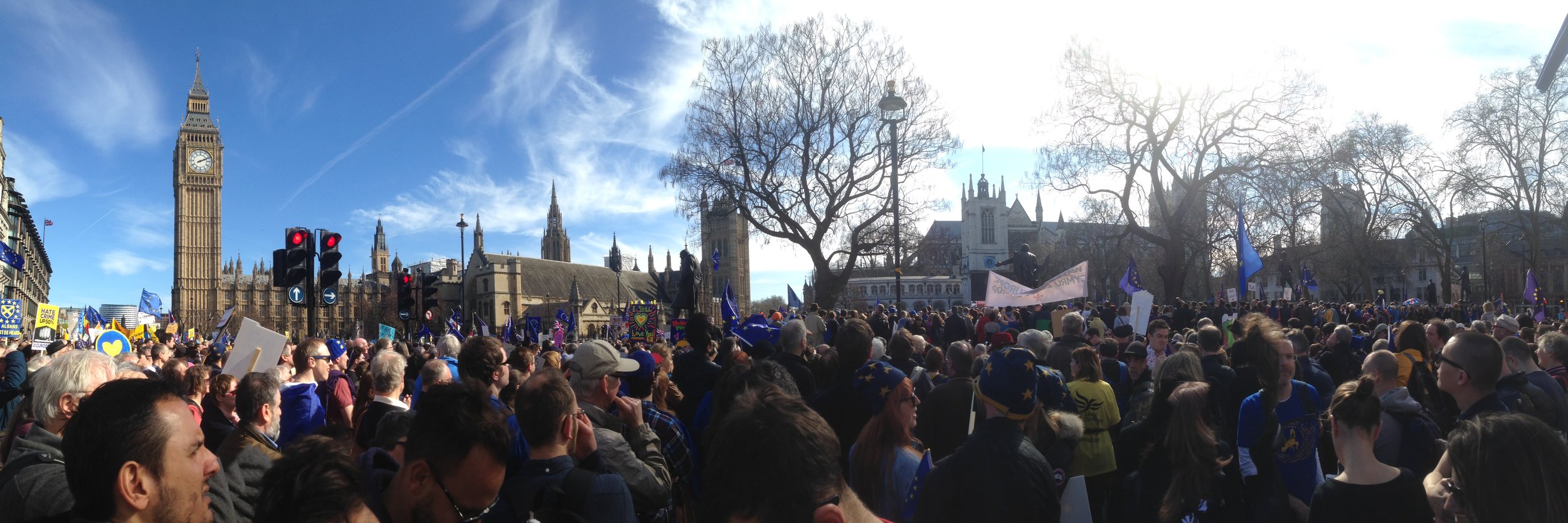Once again, it’s my sad duty to report that the Labour Party has lost an election. This time it’s the Hartlepool by-election; another post-industrial Northern seat has gone over to the Conservatives. On the same, Super Thursday, day of voting Labour also managed to come third in the Scottish elections. The party did win the elections for the Welsh Assembly and the London Mayor, but even the latter victory was by a smaller margin than anticipated.
What this shows is that Keir Starmer isn’t the natural winner he was advertised to be. The idea was that a man in a smart suit, who is schooled in political strategy, has a good brain and knows how to run things would instantly be seen as the best man to lead the country, especially when compared with an incompetent clown like Boris Johnson. Starmer’s Prime Ministerialness is turning out to be less self-evident than his boosters thought.
To explain how we got into the situation of choosing a man who looks like he’s running a branch of NatWest as the leader of the Labour Party, and then finding out that there’s more to becoming Prime Minister than holding a really good meeting, we need to talk about Tony Blair. Now, I know there are a lot of hot takes about Blair, and I don’t mean to add to the pile, but he was the last Labour leader to win a general election.
What does Blair have to say about being Labour leader?
Shortly before Starmer became Labour leader, Blair was interviewed about the future of the party. Recently a clip from this interview popped up in a Labour Facebook group I’m in. The poster was trying to make the point that we should listen to Blair as he knows how to win.
In this interview when Blair is asked about who should be the new Labour leader, he says that “the most important thing is a leader with the politics to help us win an election”. I find this statement a little annoying. It’s not a profound or novel concept. It’s a sideways dig at the left of the party, not only saying that they didn’t win an election, but that they didn’t want to win. Say what you will about Jeremy Corbyn, he wanted to win an election.
Let’s take this statement at face value: the most important thing is a leader with the politics to help us win an election. This begs the question: what are the politics to help us win?
Winning politics
We know from Blair’s speech on the 120th birthday of the Labour Party last year what he thinks the politics of winning an election is. He said that his mission was to move Labour to the centre to bring together the Labour and Lib Dem vote. This is factually inaccurate; firstly because the Lib Dem vote was at its strongest when Blair was PM, and secondly because Blair won by winning over Scotland and some of Middle England to Labour, whilst not losing too much of the traditional Labour vote.
He did this by being socially liberal, pro-EU, pro-immigration and pro-free market and I’m guessing that this is what Blair meant by the “politics to help us win an election”. I have argued with Starmer boosters on Facebook that Labour being socially liberal, pro-EU, pro-immigration and pro-free market will go down like a cup of cold sick with the voters that Labour needs to win back. How many people in Hartlepool are going to come back to Labour after they announce a return to Blair’s pro-EU, pro-immigration politics?
Are the politics to win an election anti-immigration, anti-BLM, waving the flag a lot, disparaging young people and talking about how great the British Empire was when Britannia ruled the waves? It’s more likely to be the above than pretending it’s 1995 again, dusting off the John Lennon sunglasses and sticking Some Might Say on my cassette Walkman.
Winning back lost voters
Well, Blair’s successors from the Labour Right want to grab this particular bull by the horns. They don’t go as far as saying we should make Laurence Fox head of campaigns (I would prefer that we put Count Binface in charge, at least he makes better social media videos) but they do have views on what side of the culture war Labour should be on.
A recent Fabian pamphlet called Hearts and Minds: Winning the Working Class Vote says, amongst other things, that voters “are entitled to be worried about illegal migrants crossing our borders, or becoming a drain on our resources” and that some people feel “a stranger in their own country” and that Labour should be tougher on repatriating failed asylum seekers.
I don’t agree with this pamphlet and its ideas, but it does go further than platitudes, or the usual hand waving about Labour needing to connect with people from both big cities and small towns. It does seem to say that Labour should align itself with the socially conservative values of the voters it lost in 2019. Paul Mason described this plan as Labour standing for “the agglomerated prejudices of elderly people in small communities,” which about sums up how I feel about it.
Blame the young
I’m pretty sure that Blair didn’t think that the politics to win an election involved making Labour the party of the agglomerated prejudices of elderly people in small communities. I’m sure that’s the opposite of what he wants. He probably means the politics to win an election is people in sharp suits, schooled in comms and business concepts, talking about how qualified they are to run the country - y’know, New Labour - but we’ve had this since Starmer took over and it’s not working. So, now the Labour Right have another idea.
This focus on the voters which Labour has been steadily losing since about the time Blair became PM also has a hefty dose of blame for the young city people with their craft beer, tattoos and music festivals in parks for the downfall of Labour. If only they weren’t obsessed with things old boomers in small towns hate, like treating trans people with dignity and not dying from a global freshwater shortage. Corbyn might have gone, but apparently the people who liked him are still poisoning the party a year after Starmer took over.
As a member of the left of the Labour party, I get that the right of the party doesn’t want the radical change I want. They want to make capitalism more bearable, not overthrow it. Making life more bearable for the people at the sharp end of capitalism is a noble aim and I can get behind campaigns for better wages for workers, more jobs, better housing, etc. I want a revolution, but that doesn’t mean we have to live in extractive capitalist misery until it happens. If the Labour Right think they can use the power of the state to improve the lives of the poor, then that sounds good to me.
A place of greater safety
Right now, no-one in Labour is getting what they want. In Hartlepool we’re bleeding support from the fans of Mrs Brown’s Boys, and in London, the viewers of I May Destroy You are not voting for Sadiq Khan with truckloads of enthusiasm. (Don’t write in and say you watch both, you have to choose one or the other, I don’t make the culture war rules). The party is going backwards slowly and a PM who, allegedly, said “let the bodies pile high” and then oversaw 120,000 deaths just won another election.
Maybe this is more evidence that voters do really want a leader who is a craven, narcissistic, lying self-promoter who doles out culture war soundbites like they’re brightly coloured shots at an early-00s student club night (showing my age with that one). Whenever I pointed out to Starmer boosters on Facebook that the politics of winning an election look more like what Boris Johnson is doing and less like what Starmer is doing, I was told that I was wrong and that the electorate want a sensible, centre-left, social democrat, who’s a safe pair of hands.
This view seems to have become the underlying assumption amongst a good number of Labour supporters and it needs to be challenged. Labour has retreated to a place of safety. We have ended up in the centre left, smart suit, soft speaking, dinner at Pizza Express, don’t rock the boat too much or you’ll annoy people place of safety. The problem is, the Labour Party is aspiring to run more than a middle-class family holiday to Florence, and it needs some passion and some risk-taking to do this.
What does Labour stand for?
The idea that all that’s needed to win an election is a leader who is a media trained man in a smart suit and who has a proven track record of running things is comforting and reassuring to a lot of Labour members. I get that we want to be seen as reliable next to Johnson’s chaos, but this is not a vision. Labour needs a vision of how it will change people’s lives if it’s given the reins of power. Not just relying on the voters seeing us as the sensible choice.
In the absence of a clear vision, people can project whatever they want onto Labour - and none of that will be good. No-one is willing to give Labour the benefit of the doubt if it isn’t 100% clear exactly what the party stands for. Right now, what Starmer’s Labour stands for, aside from better grooming, is vague at best.
The Labour Right’s vision
The Labour Right has at least the beginning of a vision for what Labour stands for. It may be the agglomerated prejudices of elderly people in small communities, but that’s better than the nothing we have now. I disagree with Labour embracing socially conservative values - it means the party would be running away from me (as opposed to gently sliding away from me, which it’s doing right now). However, I can see how tacitly this is better than the fudge that is Starmerism.
The Labour Right’s enthusiasm for this can be seen in how keen certain members are to purge Momentum or anyone to the left of Jess Philips from the party. That would send a strong message about Labour’s identity to the voters they have lost. To justify this, they’re keen to blame all of Labour’s current woes on its younger, more socially liberal supporters scaring off frightened Boomers with all this radical talk of black lives mattering.
The party of Walthamstow and Workington
I don’t believe in blaming Labour’s problems on young city people with their strange coloured hair and strange desire to not die breathing in polluted air in the drowned ruins of our major cities before we all turn 50. I also don’t believe in ratchetting up the rhetoric on asylum seekers and immigrants as a means to win back support from Boomer Brexit voters. Especially as immigration has got less saliant as a political issue since we left the EU.
I don’t think we should take for granted Labour support in cities, like the party did with working class support in small towns during the Blair years. I also don’t think we should give up on everyone who voted for Brexit or the Tory party in the last five years as irredeemably racist and not worth attempting to convince to vote Labour again. Labour can be the party of Walthamstow and Workington, if it has a vision of radical economic change that can tackle the problems of both places.
A narrative for all
Labour needs to know what it stands for. We all know what it’s against: Tory corruption and incompetence, which is harder to argue as they successfully roll out the vaccine. Being against the government isn’t enough for an opposition, it needs to be for something. Once we know what we’re for we can craft a narrative about this country, what has gone wrong and where Labour will take it that voters of all stripes can believe in.
The result in Hartlepool and London show that Labour’s approach isn’t working. Putting on a suit and looking managerial isn’t enough to win broad support in the 21st century. There are ways that Labour can win back the voters it has lost in places like Hartlepool, along with holding onto the voters it has gained in places like London and Wales.
This will involve careful navigation of the values gap between these voters. Most notably on the issue of patriotism. More on that in the next blog post.
"Extinction Rebellion-11" by juliahawkins123 is licensed under CC BY 2.0
























